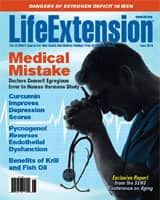Lycopene supplementation aids blood vessel function in heart disease patients
Tuesday, June 17, 2014. On June 9, 2014, the journal PLOS One reported a benefit for lycopene, an antioxidant that occurs in tomatoes, watermelon and other red fruits, in improving endothelial function in cardiovascular disease patients.
"There's a wealth of research that suggests that the Mediterranean diet — which includes lycopene found in tomatoes and other fruit as a component — is good for our cardiovascular health," stated lead researcher Joseph Cheriyan, who is a consultant clinical pharmacologist and physician at Addenbrooke's Hospital and Associate Lecturer at the University of Cambridge. "But so far, it's been a mystery what the underlying mechanisms could be."
Endothelial dysfunction occurs when the inner lining of the blood vessels fails to dilate or constrict properly, and is believed to be involved in the development of atherosclerosis. In a double-blind trial, Dr Cheriyan and colleagues randomized 36 cardiovascular disease patients treated with statin drugs and an equal number of healthy control subjects to receive 7 milligrams oral lycopene per day or a placebo for two months. Forearm blood flow assessments of endothelium dependent and independent vasodilation, and basal nitric oxide synthase activity were conducted before and after treatment.
Endothelial-dependent vasodilation improved by 53% among those in the cardiovascular disease group who received lycopene. Although it averaged 30% lower in cardiovascular disease patients in comparison with healthy volunteers at the beginning of the study, by the end of the treatment period the endothelial-dependent vasodilation of participants with cardiovascular disease who received lycopene was comparable to that of the healthy subjects at the study's onset.
"We've shown quite clearly that lycopene improves the function of blood vessels in cardiovascular disease patients," Dr Cheriyan announced. "It reinforces the need for a healthy diet in people at risk from heart disease and stroke. A daily 'tomato pill' is not a substitute for other treatments, but may provide added benefits when taken alongside other medication. However, we cannot answer if this may reduce heart disease — this would need much larger trials to investigate outcomes more carefully."
"Impaired endothelial function is a known predictor of increased risk of future heart disease," commented Professor Jeremy Pearson, who is the Associate Medical Director of the British Heart Foundation. "Further work is needed to understand whether the beneficial effects seen in this small study translate into clinical benefit for at-risk patients."
|
 |
What's Hot
Researchers from the University of Maine report a protective effect for wild blueberries against some of the adverse effects related to metabolic syndrome, which increases the risk of heart disease and diabetes. The findings were described in an article published in Applied Physiology, Nutrition, and Metabolism on November 6, 2013. "The metabolic syndrome is a group of risk factors characterized by obesity, hypertension, inflammation, dyslipidemia, glucose intolerance and insulin resistance, and endothelial dysfunction," explained study coauthor Dorothy Klimis-Zacas, who is a professor of clinical nutrition at the University of Maine.
The study tested the effect of a blueberry-enriched diet in a rat model of metabolic syndrome. Thirty-six obese rats and an equal number of lean animals received a diet containing the human equivalent of two cups per day blueberries or a control diet for eight weeks. Aortic vessel vasoconstriction and vasorelaxation, which are determinants of endothelial function, and other factors were assessed at the end of the treatment period. "Endothelial dysfunction is a landmark characteristic of metabolic syndrome, and the obese Zucker rat, an excellent model to study the metabolic syndrome, is characterized by vascular dysfunction," Dr Klimis-Zacas observed. "The vascular wall of these animals shows an impaired response to vasorelaxation or vasoconstriction which affects blood flow and blood pressure regulation."
Obese rats underwent improvements in the balance between constricting and relaxing factors, indicating better endothelial function. "We have previously documented the cardiovascular benefits of a polyphenol-rich wild blueberry in a rat model with impaired vascular health and high blood pressure," Dr Klimis-Zacas noted. "Our new findings show that these benefits extend to the obese Zucker rat, a widely used model resembling human metabolic syndrome."
Dr Klimis-Zacas concluded that "by normalizing oxidative, inflammatory response and endothelial function, regular long-term wild blueberry diets may also help improve pathologies associated with the metabolic syndrome." |
 |
Highlight
Life Extension Magazine® June 2014 Issue

- On the Cover
- Reports
- Departments
- Journal abstracts
|

|
Latest Products |
 |
| |
Disease Prevention and Treatment, 5th ed.
Life Extension's long-awaited 5th edition of Disease Prevention and Treatment, the latest guide to protecting against or improving the outcome of a wide range of health concerns, is now available in both hardcover and eBook format. Disease Prevention and Treatment is the culmination of decades of investigation by Life Extension into nutritional, alternative, and advanced therapies for conditions affecting Life Extension members or their loved ones — many of whom have been provided with few answers by mainstream medicine. While not a substitute for a physician's advice, the suggestions contained within Disease Prevention and Treatment can, in most cases, be combined with standard therapies or utilized to help prevent a more serious condition from developing in the first place.
While Disease Prevention and Treatment is a valuable addition to any physician's reference library, it is written in a style accessible to the lay reader, and will appeal to anyone interested in improving their health and living longer. For those who can't wait to avail themselves of this important information, Disease Prevention and Treatment is available as an eBook as well as an impressive hardbound volume. |
|
 |
Related Articles
|
|









